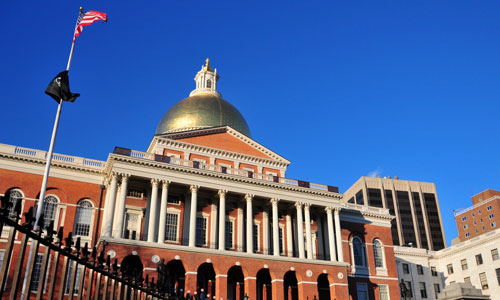A years-in-the-making bill to enact new taxes and regulations on short-term home rental services like Airbnb was approved by legislators and signed into law by Massachusetts Governor Charlie Baker Dec. 28. Once it takes effect July 1, these services that can provide supplementary income to homeowners and even some real estate professionals will be taxed and regulated in a manner similar to hotels.
“Our administration has long supported leveling the playing field for short-term rental operators who use their properties as de facto hotels,” Baker said in a statement after signing the bill.
The version of the bill signed into law is much the same as the one that had been under consideration by state representatives for more than a year. After going into effect, services like Airbnb will collect a 5.7 percent tax on home rentals made for a period of 31 days or less, remitting those to the state. In addition, local governments may levy their own tax on these rentals; up to a rate of 6 percent, or 6.5 percent within Boston city limits. Cape Cod and the surrounding islands will also charge a 2.75 percent fee for the Cape Cod and Islands Water Protection Fund. Some locally or professionally managed properties listing short-term rentals may even be subject to a 3 percent community impact fee.
Other than new taxes, owners of short-term rental properties will need to carry a valid liability insurance policy for the home valued up to $1 million. Finally, all short-term rental units must be registered with the state as well as the local authority, if applicable. This may require unit inspections and incur additional fees.
These taxes and rules are only subject to owners and managers of units rented out for less than a month at a time, and don’t apply to conventional apartment leases or “tenancy-at-will” agreements that last more than a month. And, in a last-minute change to the bill, the taxes will not apply to property owners who only rent out their home for 14 days or fewer per year. The Massachusetts Association of Realtors explains that property owners will need to submit a document to formally qualify for this exception.
MAR provided some additional guidance for Realtors who own or manage short-term rental properties before the new laws take effect.
“Realtors would be wise to disclose to prospective renters that any booking made on or after January 1, 2019 may be subject to a tax and that the tax rate may change before the rental period,” MAR explained. “Realtors may want to postpone the collection of rent until the community tax rates are finalized.”
The Boston Globe further reported that the law could still be in jeopardy even after its signing. Airbnb sued the City of Boston over its municipal tax rate, and the case is still pending in federal court.
“We’re proud of the community we’ve built in Massachusetts, with over 1.2 million travelers using Airbnb to visit the Commonwealth and nearly 2 million Bay Staters using Airbnb to travel at home and abroad in 2018 alone,” a spokesperson for Airbnb said in a statement on the bill’s passage. “While we are deeply disappointed in the flawed bill that emerged from Beacon Hill during the lame duck session, we will continue the fight to protect our community and the economic engine of short-term rentals for hosts, guests, and local small businesses.”

